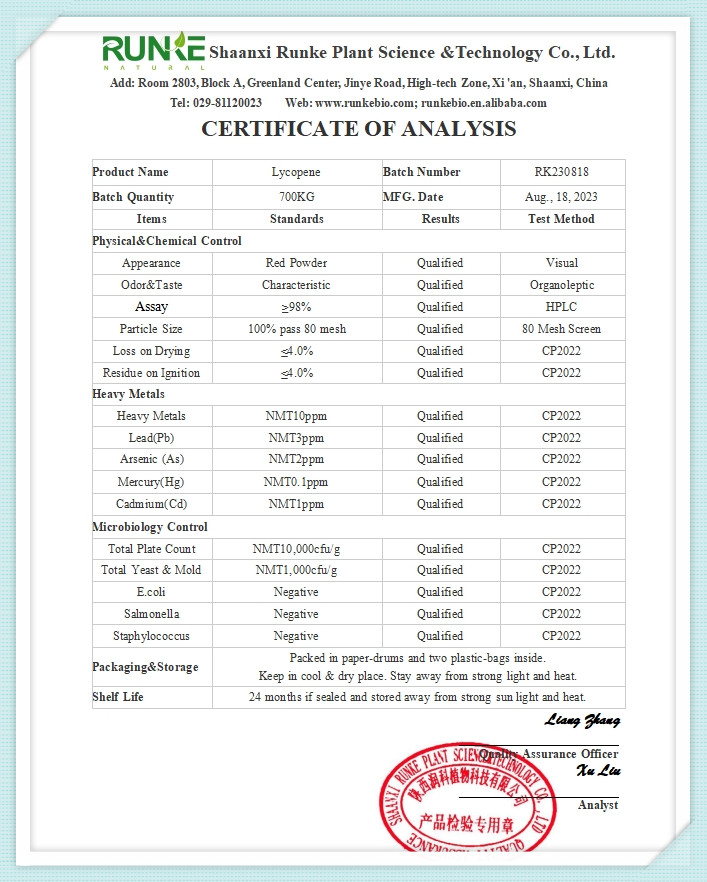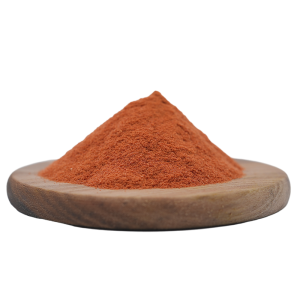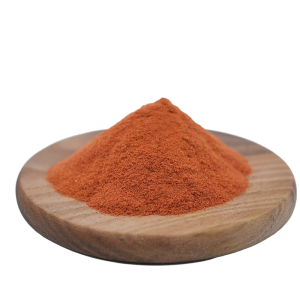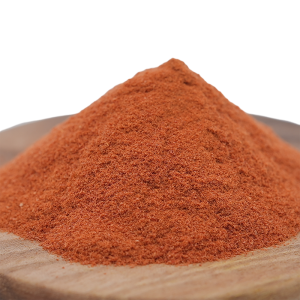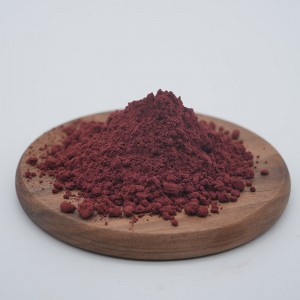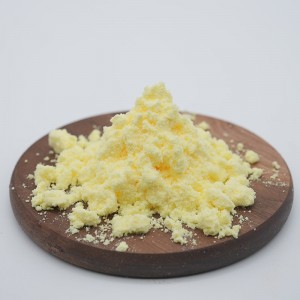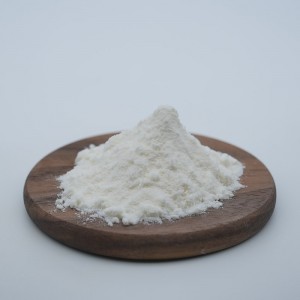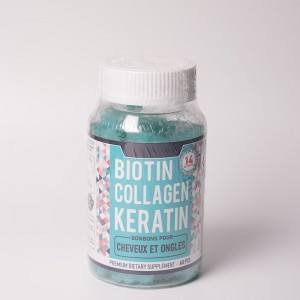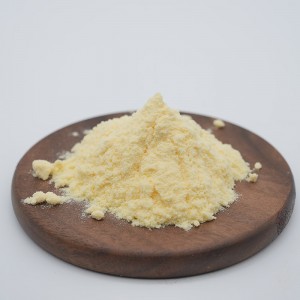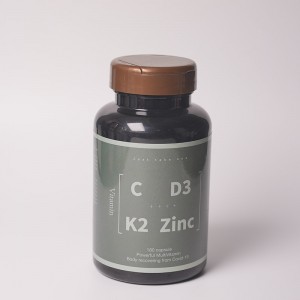
Products
Lycopene
Product Description
Lycopene is a natural pigment that belongs to the carotenoid family. It is found in various fruits and vegetables, particularly in tomatoes, watermelon, and papaya. Lycopene is responsible for giving these foods their vibrant red color. Beyond its visual appeal, lycopene has garnered attention for its potential health benefits.
One of the key characteristics of lycopene is its antioxidant properties. Antioxidants play a crucial role in protecting our cells from damage caused by harmful molecules called free radicals. Free radicals are produced as a byproduct of normal metabolism and can also be generated by exposure to environmental factors like pollution, radiation, and cigarette smoke. When free radicals accumulate in the body, they can cause oxidative stress and lead to various chronic diseases and aging-related conditions.
Numerous studies have suggested that lycopene's strong antioxidant activity may help combat oxidative stress and reduce the risk of certain diseases. One area of interest is its potential impact on heart health. Research indicates that lycopene may contribute to reducing the oxidation of low-density lipoprotein (LDL) cholesterol, commonly referred to as "bad" cholesterol. Oxidized LDL cholesterol is more likely to contribute to the formation of plaque in the arteries, increasing the risk of cardiovascular diseases. By preventing or reducing this oxidation process, lycopene could potentially promote heart health.
Another area of investigation is lycopene's association with skin health. The skin is constantly exposed to environmental stressors, such as ultraviolet (UV) radiation. UV radiation generates free radicals in the skin, leading to oxidative damage and premature aging. Lycopene's antioxidant properties are believed to help neutralize these free radicals, potentially reducing the risk of skin damage and promoting healthier, more youthful-looking skin. While topical application of lycopene-containing products is being explored, consuming lycopene-rich foods is considered a natural and holistic approach to supporting skin health.
While lycopene's potential benefits are intriguing, it is important to note that further research is needed to fully understand its mechanisms and establish definitive conclusions. Additionally, it is worth emphasizing that lycopene should not be viewed as a standalone solution or a substitute for a balanced and healthy lifestyle. A well-rounded diet incorporating a variety of fruits, vegetables, whole grains, lean proteins, and regular physical activity remains the foundation for optimal health.
Incorporating lycopene-rich foods into your diet is relatively easy. Tomatoes, especially when cooked or processed, are excellent sources of lycopene. Heating or processing tomatoes breaks down the cell walls, making the lycopene more bioavailable, meaning it is easier for the body to absorb and utilize. This explains why tomato-based products like sauces, soups, and juices are particularly rich in lycopene. Watermelon and papaya also provide notable amounts of lycopene.
It's important to note that lycopene is a fat-soluble nutrient, meaning it is better absorbed when consumed with some fat. Pairing lycopene-rich foods with healthy fats, such as olive oil or avocado, may enhance its absorption and maximize its potential health benefits.
As with any dietary component, individual needs and sensitivities may vary. If you have specific health concerns or conditions, it is always advisable to consult with a healthcare professional or registered dietitian before making significant changes to your diet or incorporating specific nutrients or supplements.
In conclusion, lycopene is a natural pigment found in various fruits and vegetables, known for its vibrant red color. Its antioxidant properties make it a potentially valuable compound for promoting overall health. While further research is warranted, consuming lycopene-rich foods as part of a balanced diet is a simple and delicious way to harness its potential benefits. So go ahead and savor those juicy tomatoes, refreshing watermelon slices, and succulent papaya to add a dose of lycopene to your diet and support your well-being.
Certificate of Analysis
